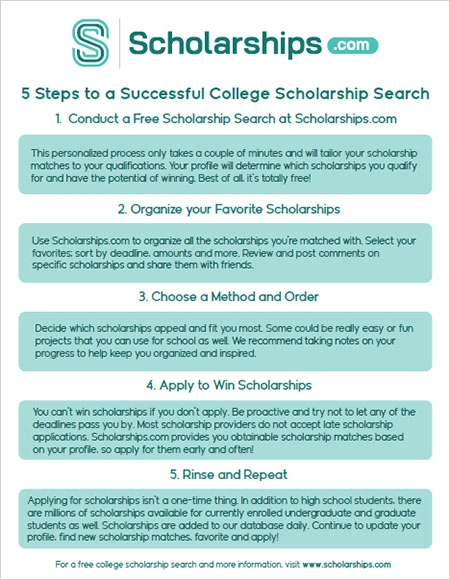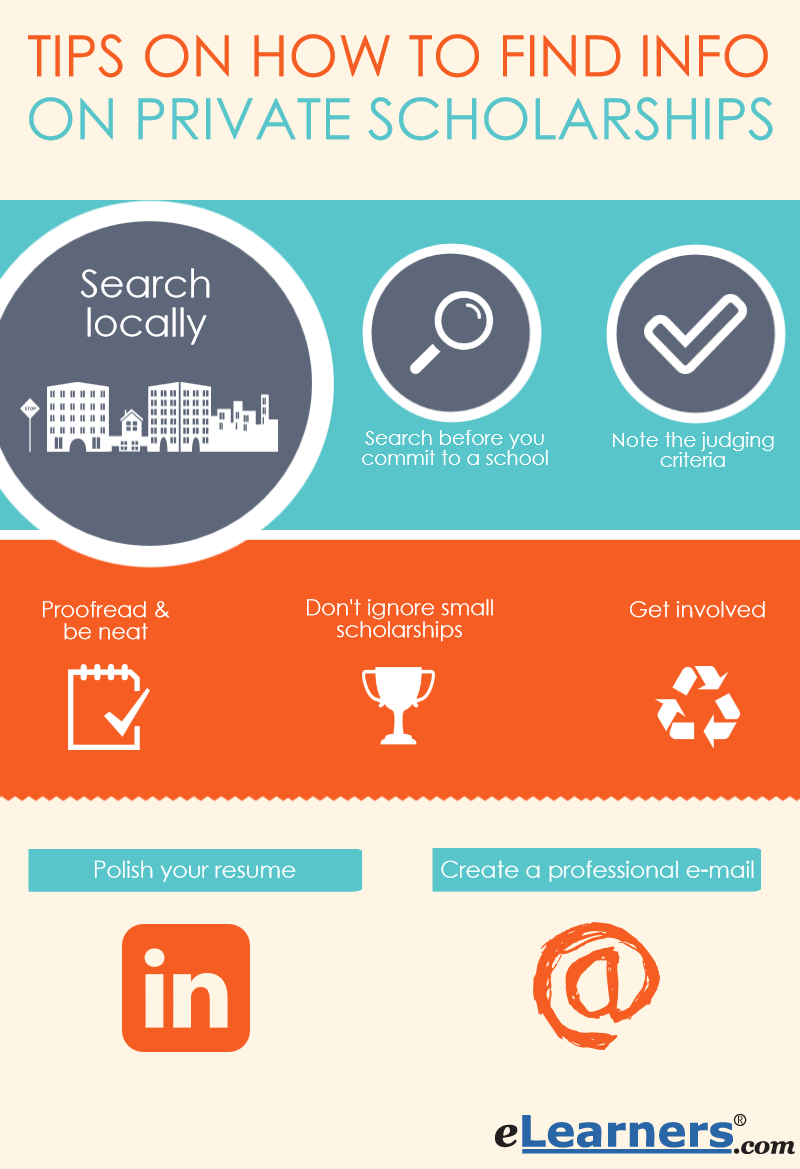Free Resources to Help You Find Scholarships

Unnecessary student debt is a widespread issue, but countless scholarships exist to alleviate this burden. Many students miss out simply because they don't know where to look. Fortunately, numerous free resources are available to assist in your scholarship search, making higher education more accessible. These resources range from comprehensive online databases to personalized matching services and even community-based programs. By utilizing these free tools effectively, you can significantly increase your chances of finding and securing scholarships to fund your education. This article will guide you through some of the most valuable free resources, providing tips and strategies to maximize your success in the scholarship hunt.
Free Resources to Help You Find Scholarships
Finding scholarships can feel overwhelming, but numerous free resources are available to help you navigate the process and increase your chances of securing funding for your education. These resources range from comprehensive databases and search engines to non-profit organizations dedicated to connecting students with scholarship opportunities. Utilizing these tools effectively can significantly reduce the financial burden of higher education and make your academic dreams more attainable. Many offer personalized search options, allowing you to filter scholarships based on your field of study, academic achievements, background, and other criteria, ensuring you focus on relevant opportunities.
Online Scholarship Search Engines
Online scholarship search engines are a great starting point. Websites like Scholarships.com, Fastweb, and Niche allow you to create profiles and then match you with scholarships that fit your qualifications. These platforms aggregate thousands of scholarships, streamlining the search process. Be sure to complete your profiles thoroughly and update them regularly to receive the most relevant scholarship recommendations. Furthermore, pay attention to the eligibility requirements for each scholarship and prioritize those for which you are a strong candidate.
University Financial Aid Offices
Your university's financial aid office is a crucial resource. They have detailed information about institutional scholarships, grants, and other funding opportunities specific to your college. In addition, financial aid officers can provide personalized guidance on navigating the application process and maximizing your financial aid package. Don't hesitate to schedule an appointment to discuss your individual circumstances and explore all available options. They can also inform you of external scholarships that are popular among students in your specific program or major.
Government Agencies and Programs
Several government agencies offer scholarships and grant programs to support students pursuing higher education. The Federal Student Aid (FAFSA) is essential for accessing federal grants and loans, but it can also unlock certain scholarship opportunities. Additionally, state-level agencies often have programs tailored to residents pursuing specific fields of study or attending in-state institutions. Researching the offerings of both federal and state agencies can uncover valuable funding sources you may not find elsewhere.
Non-Profit Organizations and Foundations
Numerous non-profit organizations and private foundations offer scholarships focused on specific demographics, fields of study, or community involvement. Websites like the Council on Foundations can help you identify relevant organizations and foundations that align with your interests and background. Many of these organizations have a specific mission to support students from underserved communities or pursuing careers in particular fields. Explore their websites, carefully review their eligibility criteria, and follow their application instructions meticulously.
Local Community Resources
Don't overlook the potential of local community resources. Your high school guidance counselor, local libraries, and community centers may have information about scholarships offered by local businesses, civic organizations, and religious institutions. These scholarships are often smaller than national awards, but they can be less competitive and easier to obtain. Networking within your community can uncover hidden opportunities and provide valuable support during your scholarship search.
| Resource Type | Website/Contact | Key Features | Benefits |
|---|---|---|---|
| Scholarship Search Engine | Scholarships.com, Fastweb, Niche | Large database, personalized matching, profile creation | Efficient search, targeted results, saves time |
| University Financial Aid Office | [Name of University] Financial Aid Office | Institutional scholarships, personalized guidance, external scholarship information | Direct support, tailored advice, comprehensive information |
| Government Agency | FAFSA, State Department of Education | Federal and state grants, loan programs, targeted scholarships | Access to significant funding, broad eligibility criteria |
| Non-Profit Organization | Council on Foundations, individual organization websites | Specific focus, tailored to demographics or fields of study | Mission-driven support, targeted funding, unique opportunities |
| Local Community Resource | High school guidance counselor, local library, community center | Local scholarships, community connections, smaller awards | Less competitive, community-focused, accessible opportunities |
https://youtube.com/watch?v=WSiEYDtqpXE%26pp%3D0gcJCdgAo7VqN5tD
What is the best way to find scholarships?

Utilize Online Scholarship Databases
Comprehensive Scholarship Search Engines: Begin your search with reputable online databases like Scholarships.com, Fastweb, Chegg Scholarships, and Niche. These platforms allow you to create a profile and filter scholarships based on your academic standing, field of study, demographics, and other criteria.
Specialized Databases: Explore databases that focus on specific fields of study or demographics, such as those offered by professional organizations, foundations, and government agencies. For example, if you're pursuing a degree in engineering, search for engineering-specific scholarships through organizations like the IEEE or ASME.
Database Features: Utilize the advanced search filters provided by these databases to narrow down your options. Pay attention to deadlines and eligibility requirements to avoid wasting time on scholarships you don't qualify for. Set up alerts or email notifications to stay informed about new scholarship opportunities that match your profile.
Tap Into University and College Resources
Financial Aid Office: Contact your university's financial aid office. They often have a comprehensive list of scholarships specifically for students at that institution. These scholarships can be based on academic merit, financial need, or specific departmental affiliations.
Departmental Scholarships: Explore scholarships offered by your academic department. Departments often have scholarships tailored to students pursuing specific majors or research areas. Contact your professors or academic advisors for information on departmental scholarships and other funding opportunities.
Alumni Associations: Check if your university's alumni association offers scholarships to current students. Alumni associations often provide scholarships based on academic achievement, leadership potential, or community involvement. Attend alumni events to network and learn about scholarship opportunities.
Explore Community and Local Resources
Local Organizations: Research scholarships offered by local organizations, such as community foundations, rotary clubs, and chambers of commerce. These scholarships often target students from specific geographic areas or those pursuing specific fields of study.
Religious Institutions: If you are affiliated with a religious institution, check if they offer scholarships to members. Many religious organizations provide scholarships to students pursuing higher education.
Employer-Sponsored Scholarships: Inquire about scholarships offered by your employer or your parents' employers. Many companies offer scholarships to employees and their dependents as part of their benefits packages. Check the eligibility criteria carefully, as these scholarships may have specific requirements, such as maintaining a certain GPA or pursuing a particular field of study.
Leverage Professional and Industry Associations
Professional Organizations: Investigate scholarships offered by professional organizations related to your field of study. For example, if you're studying nursing, check out the scholarships offered by the American Nurses Association.
Industry Associations: Explore scholarships offered by industry associations within your field of interest. These associations often provide scholarships to students pursuing careers in their respective industries.
Membership Benefits: Consider becoming a student member of relevant professional or industry associations. Membership often comes with access to scholarship opportunities, networking events, and other resources that can benefit your career. Take advantage of any mentorship programs offered by these associations, as mentors can provide valuable guidance on scholarship applications and career development.
Craft a Compelling Application
Follow Instructions Carefully: Read the scholarship application instructions thoroughly and adhere to them precisely. Incomplete or poorly prepared applications are often rejected automatically.
Highlight Your Strengths: Emphasize your academic achievements, extracurricular activities, and volunteer experiences in your application. Showcase your unique skills and qualifications that make you a strong candidate for the scholarship.
Write a Strong Essay: If the scholarship requires an essay, craft a well-written and compelling essay that addresses the prompt directly. Tell a story that showcases your personality, aspirations, and how the scholarship will help you achieve your goals. Proofread your essay carefully for grammar and spelling errors.
Seek Recommendations: Obtain strong letters of recommendation from teachers, mentors, or employers who know you well. Provide them with information about the scholarship and your goals so they can write a compelling recommendation that highlights your strengths and qualifications.
Proofread Everything: Before submitting your application, proofread everything carefully for errors in grammar, spelling, and punctuation. Ask a friend or family member to review your application as well to catch any mistakes you may have missed. Submitting a polished and error-free application demonstrates your attention to detail and commitment to excellence.
How do I find scholarships that no one applies for?

Target Local and Regional Scholarships
Local and regional scholarships often have significantly fewer applicants than national ones. This is because they are only open to students in a specific geographical area, which automatically reduces the pool of eligible candidates. To find these, try the following:
- Check with your high school or college guidance counselor. They often have lists of local scholarships that are available to students in your area.
- Search the websites of local businesses and organizations. Many businesses offer scholarships to students in their community. Consider local community foundations, credit unions, and professional organizations.
- Look for scholarships offered by local charities and non-profit organizations. These scholarships are often geared towards students who are interested in a particular cause or field of study.
Focus on Niche Interests and Fields of Study
Scholarships geared towards specific majors, hobbies, or extracurricular activities often have fewer applicants than general scholarships. If you have a unique interest or skill, it's worth looking for scholarships that cater to it. Here's how:
- Search for scholarships related to your major. Many universities and professional organizations offer scholarships to students pursuing specific degrees. For example, engineering students could look for scholarships from engineering societies.
- Consider scholarships for specific hobbies or extracurricular activities. If you're a talented musician, artist, or athlete, look for scholarships that reward your skills. Consider writing competitions, art contests, and athletic scholarships.
- Look for scholarships for students with specific backgrounds or identities. Many organizations offer scholarships to students from underrepresented groups, such as first-generation college students or students with disabilities.
Explore Scholarships from Smaller Organizations and Associations
Large, well-known organizations receive a high volume of scholarship applications. Instead, focus on smaller, lesser-known organizations and associations within your field of interest. These groups may offer scholarships that are less widely publicized, resulting in fewer applicants.
- Research professional organizations in your field of study. Many professional organizations offer scholarships to students who are pursuing degrees in their field.
- Look for scholarships from smaller non-profit organizations. These organizations may have limited resources for advertising their scholarships, so they may receive fewer applications.
- Check with local chapters of national organizations. Local chapters may offer scholarships that are only available to students in their area.
Utilize Advanced Search Techniques
Effectively using search engines is crucial. Don't just rely on generic keywords like "college scholarships." Use more specific terms and filters to narrow your search and uncover hidden gems.
- Use advanced search operators on Google. Use phrases like "scholarship for [specific major] AND [location]" or "[unique skill] scholarship OR grant."
- Filter your search results by date. This can help you find scholarships that have recently been announced and may not have received many applications yet.
- Use keyword variations. Instead of just "scholarship," try "grant," "bursary," "fellowship," or "award."
Don't Overlook Essay Contests and Creative Competitions
Essay contests, creative writing competitions, and art/design contests are often overlooked as scholarship opportunities. While they require effort, the application pool is often smaller than traditional scholarship applications.
- Search for essay contests that offer scholarship prizes. Many organizations and publications sponsor essay contests that are open to students.
- Look for creative competitions in your field of interest. If you're a talented artist or designer, look for competitions that offer scholarship awards.
- Consider writing competitions sponsored by local organizations. These competitions may have smaller entry fees and less competition than national competitions.
Is the Niche $50,000 scholarship real?

Niche.com's Reputation and Legitimacy
Niche.com is a well-established platform with a strong reputation for providing data-driven insights and reviews on educational institutions and communities. They generate revenue through advertising and partnerships with schools and other organizations. Offering scholarships helps them attract users and build their brand reputation. It's important to remember that legitimate scholarship providers often benefit from increased website traffic and user engagement, which can be monetized in other ways.
- Niche.com has been operating for many years and is a trusted source of information for students and parents.
- The company is transparent about its business model and funding sources.
- Scholarships are a common way for companies to attract users and build brand awareness.
Entry Requirements and Eligibility
The Niche $50,000 Scholarship is generally open to high school students, college students, and those planning to enroll in higher education within the next 12 months. The primary entry requirement is simply to create a profile on Niche.com and enter the scholarship drawing. There are usually no minimum GPA or test score requirements. Eligibility details can change, so it is crucial to check the official Niche website for the most up-to-date rules and guidelines.
- Creating a profile on Niche.com is the primary way to enter.
- The scholarship is open to a wide range of students, regardless of academic performance.
- Checking the official Niche website for specific eligibility requirements is highly recommended.
Competition and Odds of Winning
Due to the scholarship's high value and ease of entry, the competition is fierce. Thousands upon thousands of students apply each year, making the odds of winning relatively low. While the scholarship is indeed real, managing expectations and understanding the sheer number of applicants is crucial. Participating in other scholarship opportunities is a must to enhance your chances of receiving financial assistance for education.
- The large value and simple entry process attract a huge number of applicants.
- The odds of winning are low due to the high level of competition.
- Relying solely on this scholarship is not advisable, pursue other scholarship opportunities.
How to Increase Your Chances of Winning
While the Niche $50,000 Scholarship is primarily a random drawing, there are some ways to potentially improve your chances. Regularly logging in to your Niche profile, completing your profile with accurate information, and engaging with the website by reading reviews and exploring different schools may increase your chances. In addition, confirming your email address and actively participating on the platform can show that you are an engaged user.
- Regularly log in to your Niche profile to show activity.
- Complete your profile with accurate and detailed information.
- Engage with the website by reading reviews and exploring different schools.
Avoiding Scholarship Scams
While the Niche scholarship is legitimate, it's essential to be aware of potential scholarship scams. Never pay a fee to apply for a scholarship. Legitimate scholarship providers do not charge application fees. Be wary of any scholarship that promises guaranteed winnings or asks for your social security number or bank account information upfront. Always do your research and verify the legitimacy of any scholarship before applying.
- Never pay a fee to apply for a scholarship.
- Be wary of scholarships that promise guaranteed winnings.
- Protect your personal information and avoid sharing sensitive details upfront.
What tool allows students to search for scholarships?

The Importance of Scholarship Search Tools
Scholarship search tools are vital resources for students seeking financial assistance for their education. Navigating the complex landscape of scholarships can be overwhelming without a centralized and easily searchable database. These tools help students discover opportunities they might not otherwise find, significantly increasing their chances of securing funding to offset the cost of tuition, fees, and other educational expenses.
- They provide a comprehensive overview of available scholarships.
- They save students time and effort by consolidating information in one place.
- They can help students identify scholarships that match their specific qualifications and interests.
Key Features of Effective Scholarship Search Tools
A robust scholarship search tool should possess several key features to ensure it is effective and beneficial for students. These features typically include advanced search filters, personalized matching algorithms, and regularly updated databases. The best tools also offer tips and resources for scholarship applications, helping students present themselves in the best possible light to increase their chances of success.
- An extensive database of scholarships with details on eligibility criteria, award amounts, and deadlines.
- Advanced search filters to narrow down options based on factors such as GPA, major, and ethnicity.
- Personalized recommendations based on student profiles and academic achievements.
Navigating Scholarship Search Tool Results
While scholarship search tools can uncover numerous opportunities, it's important to critically evaluate the results. Students should carefully review the eligibility requirements for each scholarship, ensuring they meet all the necessary criteria. It is equally important to verify the legitimacy of the scholarship provider to avoid scams. A reputable search tool will typically only list legitimate scholarships, but due diligence is always recommended.
- Pay close attention to deadlines and plan accordingly.
- Read the eligibility requirements thoroughly.
- Research the scholarship provider to ensure legitimacy.
Beyond Online Search Engines: Other Scholarship Resources
While online scholarship search engines are the primary tool for many students, it's important to remember that they are not the only resource available. Students should also explore scholarship opportunities offered by their high schools or colleges, as well as local community organizations and professional associations. Networking with teachers, counselors, and mentors can also provide valuable leads.
- College and university websites often have dedicated scholarship sections.
- High school guidance counselors can provide information on local and regional scholarships.
- Professional organizations related to a student's field of study may offer scholarships.
Avoiding Scholarship Scams
Unfortunately, scholarship scams are prevalent, and students need to be vigilant. Legitimate scholarships never require an application fee. Be wary of any organization that asks for money upfront, guarantees a scholarship award, or pressures you to provide sensitive personal information. Use a reputable scholarship search engine to minimize your risk.
- Never pay an application fee for a scholarship.
- Be suspicious of guarantees or high-pressure tactics.
- Protect your personal information and never provide it unless you are certain of the organization's legitimacy.
Frequently asked questions
What types of free resources are available to help find scholarships?
Many free resources exist to assist you in your scholarship search. These include online databases like Fastweb and Scholarships.com, government websites such as the U.S. Department of Education, university financial aid offices that offer guidance on external scholarships, and non-profit organizations that provide scholarship listings and application assistance.
How can I ensure the free scholarship resources are legitimate and not scams?
To avoid scholarship scams, always be wary of resources that require you to pay a fee to access scholarship information or guarantee awards. Legitimate free resources will never ask for money. Check the reputation of the website or organization by looking for reviews and verifying their contact information. Always apply directly through the official scholarship application platform and never share sensitive personal information like bank account details unless absolutely necessary and you are certain of the legitimacy.
Where can I find scholarships specifically for my field of study or background?
You can discover scholarships targeted toward your specific field or background through several free resources. Explore professional organizations related to your major, as they often offer scholarships to students pursuing careers in that field. Additionally, research scholarships specifically for underrepresented groups, based on ethnicity, gender, or other demographics, through organizations that support those communities, and utilize scholarship search engines with filter options to narrow down results based on your criteria.
How often should I check these free resources for new scholarship opportunities?
Regularly checking these free resources is crucial because new scholarship opportunities are frequently added throughout the year. Aim to search at least once a week or set up email alerts from scholarship databases to receive notifications about new scholarships that match your profile. Be mindful of application deadlines, as missing them could disqualify you from consideration. Consistent monitoring ensures you don't miss out on potential funding for your education.
